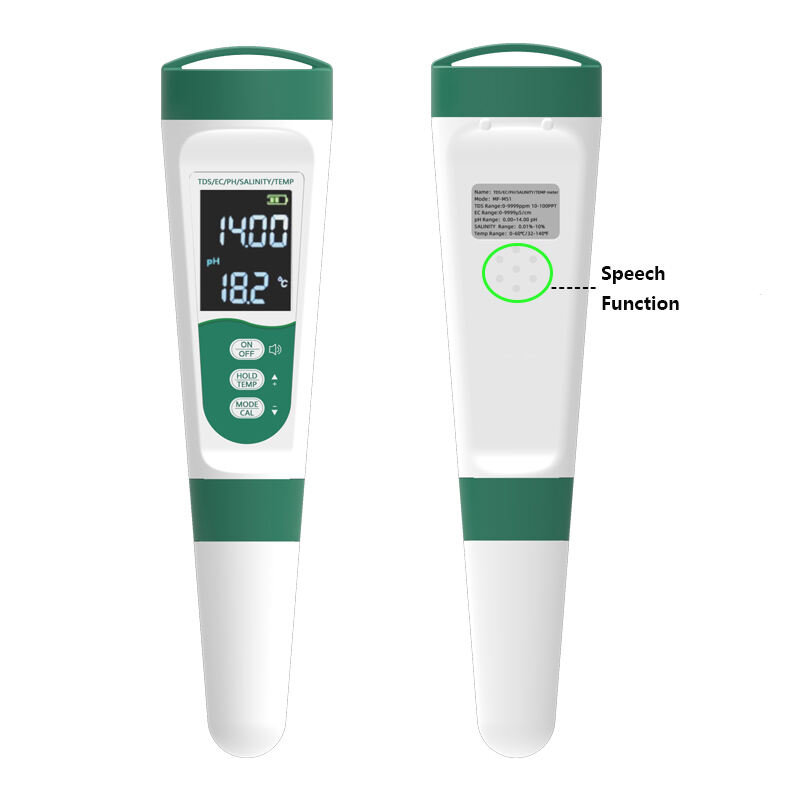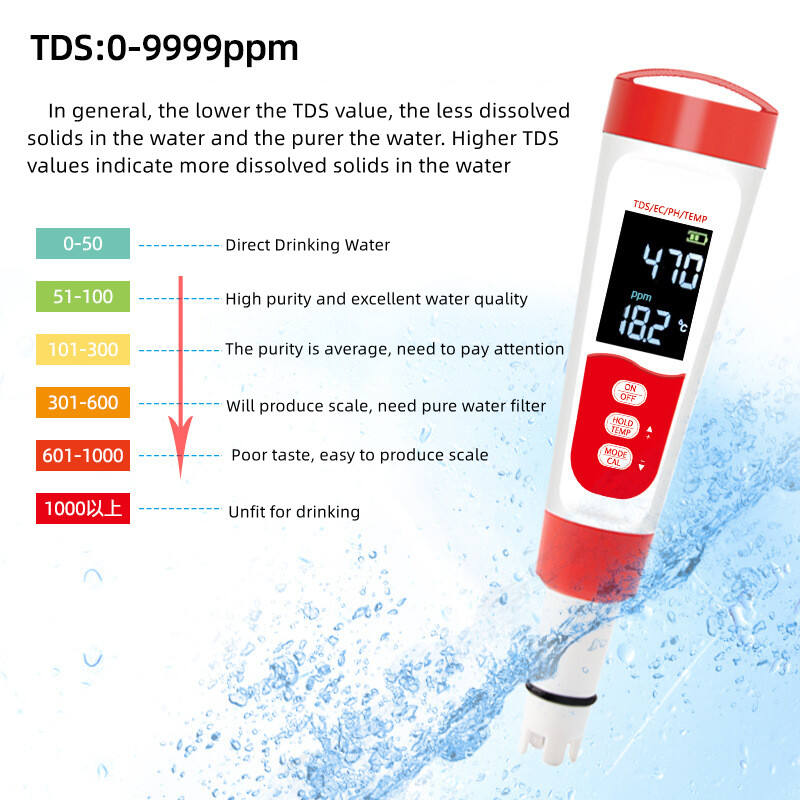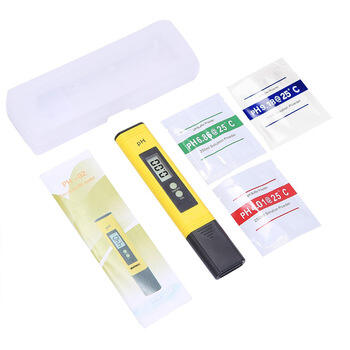elektrólisztetelő tds-mérő
A vezetékes TDS-mérő eszköz alapvető eszköz, amely tervezett a teljes oldatos anyagok és az elektrikus vezetékesség mérése közös folyadékoldatokban. Ez a többfelhasznós eszköz ötvözi a pontos mérési technológiát a felhasználóbarát operációval, ami mindkét szakmai és személyes alkalmazásokhoz igazán értékes tesz. A mérő eszköz fejlett elektrokémiai érzékelőket használ arra, hogy pontos olvasatokat nyújtson a vízben oldott ionokról és ásványokról, megjelenítve az eredményeket vagy részecskék millióra (ppm)-ben vagy mikrosiemens (µS/cm)-ben. A modern vezetékes TDS-mérők automatikus hőmérséklet-kompensációt mutatók, amely biztosítja a megbízható méréseket különböző környezeti feltételek között. Az eszköz tipikusan digitális kijelzőt tartalmaz könnyű olvasáshoz, automatikus kalibrálási képességeket, valamint víztűzéssel ellátott házit tartalékosításához. Ezek az eszközök különösen hasznosak a vízminőség értékelésekor, a hidropóniában, a haltenyésztésben, a medencék fenntartásában és az ipari folyamatokban. A mérő képessége azonnali mérést végezni a víz tisztaságáról és a minerál tartalomról, ami egy olyan elhagyhatatlan eszköz, amelyet a szakemberek a vízkezelési telepuleteken, az agrárüzleteményekben és laboratóriumi körülmények között használnak. Emellett a kompakt mérete és a töltővel működő funkció lehetővé teszi a hordozható tesztelést különböző helyeken, a mezői műveletektől a háztartási alkalmazásokig.


